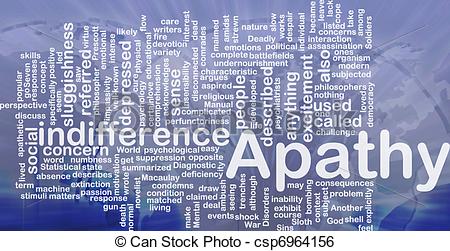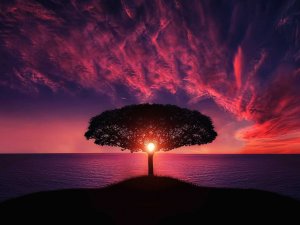PEACE - At What Price?
I.J. Singh
The Sikhs are a young religion and a vibrant people. History bears ample testimony to both, but today I messily delve into the shambles we are in.
During this generation we seem to be changing. It is as if the DNA of dynamic energy and rising to the call for action in a cause never existed at the core of Sikhi, or has it now run its course. Has the fountain of energy and ideas run dry?
This, I know, is a sweepingly challenging statement. One needs to look at the small things in life in order to note paradigm shifts at the core. Sometimes minor turns in signs and symptoms speak of cataclysmic and catastrophic shifts in wellness.
 I point to a rising tide of apathy, ennui and passivity in our community. It seems to speak volumes directly, without relying on complex, convoluted analyses.
I point to a rising tide of apathy, ennui and passivity in our community. It seems to speak volumes directly, without relying on complex, convoluted analyses.
I will work with only two recent examples and I promise to keep them brief. The two are like night and day, very different from each other.
Humans are social animals and our societal institutions can be as small as a family or as large as a nation, even a worldwide reality without borders. Citizenship of a nation carries certain expectations, as does membership in a family, club or religion.
A nation expects its citizens to actively participate in its institutions. It wants us to vote - make laws and policies - create institutions and programs as necessary. Established religions have similar expectations of their adherents.
The one "given" in all institutions, secular or religious, is that people are idiosyncratic in their loyalty and understanding of our institutions - i.e., what they do or don't do. We differ in our expectations from them. That idea - that variety - forms the powerful core of participatory self-governance.
Our Gurus created a pride of lions from a herd of sheep, and it took them a good 240 years over ten generations to achieve this paradigm shift. I will not tread the historical waters today but the lesson took, and it functioned well. Today the world remembers the independent spirit, fearlessness and success of Sikhs even when facing horrendous odds that threatened their very existence at many times and places. Sikh history remains a narrative of action and bravery with few interludes of peace.
But today I offer you two very recent examples that make me wonder. The examples are not connected and are like apples and oranges - disparate.
An ex-naval officer, Harinder Singh Sikka, made a movie about the founder of Sikhi, Guru Nanak. It is an ambitious project. As expected, this involved significant investment of time, money, effort, and indeed, blood sweat and tears.Naturally, we wish he had told the story somewhat differently at places.
I believe that the best way to counteract a bad idea is in the free marketplace of ideas, not by banning the work. In banning a work of art there is neither education nor change. But that's exactly what we have done - banned the movie - and hence preemptively censored free expression unnecessarily, and missed a teaching opportunity.
To me this means no dialogue and, by definition, no progress.
Now, is there ongoing conversation about the virtues of such films and their drawbacks? I see no evidence of it. People seem smug with the status quo. It is as if any controversy is beneath them.
How then is dialogue or progress possible?
While I was thinking about this silliness, another larger equally self-righteous stupidity landed on my plate. Several decent Sikhs brought up a basketful of very odd issues about a local gurduara located in a most prosperous suburb of the Big Apple. True that its electoral process is a little clumsy and in need of a cleanup; but the behavior that I see today does not conform to any system of a free people anywhere.
I learned that there has been no general body meeting held in over seven years, nor any elective change of management in that time - both despite the Constitution. There is no transparency on accounting procedures and I am privy to some unverified accusations about this. There is no conversation by the management on any matter and no exchange of ideas with the general body. The management hardly ever shows up in the gurduara.
Heaven only knows who makes policy.
The sangat then is no better than driven cattle.
I highlight only one gurduara but I know that things are not so different in many gurduaras across North America. I don't identify any here because that's not my purpose.
The idea today is not to question the decisions that are made; it is to question how they are made or communicated. To me, such capricious and arbitrary management defeats the primary purpose of the gurduara, which is education.
I write this with a heavy heart. The question in my mind is not if policies are sound or not, but the whole idea of participatory self-governance, which is absent.
The question is where the panacea lies.
Will this gurduara also end up in courts like so many others in the past forty years or so? Will there be brawls? Will the courts and police forcibly enforce peace as in so many gurduaras over the years? Will accusations of financial irregularities surface and lead to a suspension or closure of a magnificent facility with much promise or will good sense and some courage prevail?
How about a clearly worded judicious proposal by the members demanding a general body meeting where such matters can be dissected and laid to rest in a civil manner? There are sensible ways to start.
Which one do you think is the best alternative? And which one do you think will happen?
I also confess that this gurduara has some very enviable programs in place that others should copy. But team performance that would be rooted in the sangat is notably absent. I remind you that team performance is far more effective than individual decision making authority. That's why gurduaras and Sikhi do not push monarchy or oligarchy, no matter how wise or benevolent a single leader. What is lost in this is accountability, transparency and self-governance. That's why Sikh decision making and management theoretically should emerge from the sangat. I also realize that despite the Guru's teaching, our default position usually is that of a feudal people where the supreme leader speaks and we withdraw in submission.
To me this is neither the teaching of Sikhi nor that of a free people anywhere.
I offered you two cases: one of a movie, the other a wonderful gurduara - both with much promise. When Sikhs talked to me about either issue - and they did plenty on both - their personal reactions were of outrage.
But they were most reluctant to enter the fray. They offered honest opinions only off the record, in confidence and with the proviso that their identity not be disclosed. To me they offered much gory detail but in a whisper, as an undercurrent.
On these two issues that I raised today the sangat remains entirely passive. I have never in my life seen Sikhs quite so uncaring, no matter their social, economic or educational strata. And these are the crème-de-la-crème of our society. Or are they afraid to compromise their social standing? Or are they really tired of the rat race that is life? Has the gurduara then just become a sanctuary and club for an hour or two every Sunday?
I write this is in sadness, not at all in anger.
Has the model of a Sikh changed since the Gurus or have I regressed to a prehistoric place in my head? I remind you that in the post-Guru period the Sikhs (through its 12 misls) knew how to disagree without undermining the nation. Historically, one thing Sikhs have never been is passive and disconnected from the world around them.
The essence of a group negotiating towards a common goal is that unanimity of opinion, and homogeneity of thought, has no place in the process. And yet the group interaction can be be respectful, productive and positive.
Perhaps the allure of apathy arises from a fervent desire for a bit of peace. We need some psychic respite after all the commotions in gurduaras and Sikh institutions in India and pretty much worldwide post 1984. But I think of it as a volcano that lies dormant today - but for how long? Remember that Sikhs and Sikhi have, since their beginnings, a glorious history of dynamic activism, not fear.
Peace, as you know, is not just cessation of hostilities; it is a state of mind. To quote the comic strip "Pogo" created by Walt Kelly, methinks that we have met the enemy and he is us. I wonder, perhaps we have peace now, but at what price? I am seriously baffled.
I am reminded of the Latin aphorism ignoti nulla cupido meaning that one does not desire what one does not know.
[email protected]
May 10, 2015






